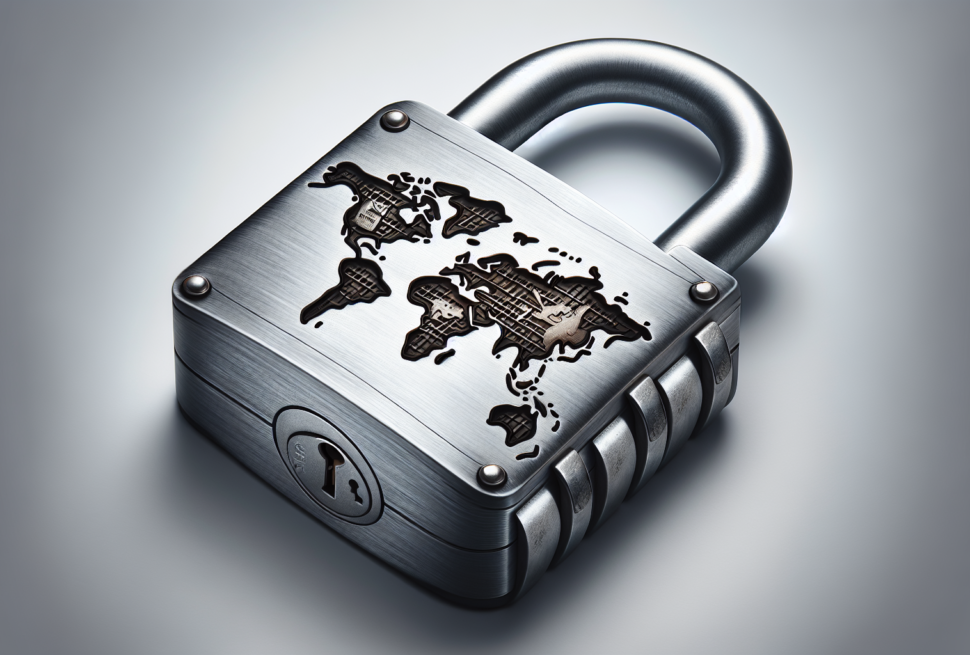Planning a vacation is always an exciting endeavor, but it’s important to prioritize safety as you embark on your adventure. Whether you’re jetting off to a tropical paradise or exploring a bustling city, there are key factors that should be considered to ensure a safe and memorable trip. From researching the destination’s safety precautions to packing essential items, this article explores the essential elements of planning a safe and cost-effective vacation. So, before you set off on your next escapade, take a few moments to delve into these important factors that will help you make the most of your well-deserved break.
Transportation
When it comes to planning a safe vacation, choosing a safe mode of transportation is of utmost importance. Whether you’re traveling by air, train, bus, or even driving yourself, it’s essential to consider the safety records of each mode of transportation. Look for information on accidents, maintenance issues, and any safety regulations that are followed. This will help ensure that you’re making the best choice for your journey.
In addition to researching safety records, reading reviews from other travelers can provide valuable insights into the safety of a particular mode of transportation. Take the time to read about other people’s experiences and pay special attention to any safety concerns mentioned. This will give you a better idea of what to expect and allow you to make an informed decision.
Lastly, consider travel insurance options for added peace of mind. While no one wants to think about worst-case scenarios, having travel insurance can provide financial coverage in case of unforeseen circumstances. Look into different policies and see what they cover, including medical emergencies, trip cancellations, and lost belongings. Remember, a little extra precaution goes a long way in ensuring a safe and stress-free vacation.
Destination
Before embarking on your vacation, it’s crucial to check travel advisories for your chosen destination. These advisories are issued by government agencies and provide information on potential risks, such as natural disasters, political unrest, or health hazards. Stay informed by checking the latest advisories and make an educated decision based on that information.
Assessing the political stability and security of your destination is another important aspect. Research the current political climate and any ongoing conflicts or tensions that may impact your safety. It’s also wise to consider the crime rates in the area you plan to visit. Look for information on theft, scams, or any other security concerns that may exist.
To ensure a safe and smooth travel experience, take the time to research and familiarize yourself with local laws and customs. Different countries have varying laws regarding public behavior, cultural practices, and even dress codes. Understanding and respecting these laws and customs will not only keep you safe but also show respect to the local community.
Accommodation
Selecting safe and reputable hotels is essential for a secure vacation experience. Look for accommodations that have positive reviews and a good reputation for safety. Read through the experiences of other guests and pay attention to any mentions of security measures, such as 24-hour front desk service, surveillance cameras, or secure parking facilities.
When booking your accommodation, ensure that the hotel provides secure access and locking mechanisms for your room. Look for features like key card systems, deadbolt locks, and peepholes. These measures will add an extra layer of security and make you feel more at ease during your stay.
Health and Safety
Your health and safety should be a top priority when traveling. Checking vaccination and health requirements for your destination is essential. Some countries require specific vaccines or may have health concerns such as malaria or Zika virus. Consult with a travel health specialist or your healthcare provider to ensure you are up to date on necessary vaccinations and precautions.
Researching local medical facilities ahead of time will also give you peace of mind. Find out where the nearest hospitals or clinics are in case of medical emergencies. Familiarize yourself with the local healthcare system and any necessary health insurance requirements.
In addition to vaccinations and medical facilities, taking necessary health and safety precautions is crucial. This may include using insect repellents, practicing safe food and water hygiene, and being mindful of your personal safety. These precautions will help minimize the risk of illness or accidents during your trip.
Emergency Preparedness
No one wants to think about emergencies while on vacation, but it’s important to be prepared. Create an emergency plan that includes important contact information, such as the local emergency services and your embassy or consulate. Make sure to share this plan with your travel companions and keep a copy with you at all times.
Having emergency contacts readily available is vital in case you need assistance. Keep a list of emergency contact numbers for your destination, including local police, hospitals, and your accommodation. It’s also a good idea to have the contact information for your country’s embassy or consulate stored in your phone or written down.
Knowing the nearby consulate or embassy locations is crucial in case you encounter any legal or safety issues. Research their addresses and contact information before your trip, and make a note of where they are located in relation to your accommodation and tourist areas. This knowledge will provide you with peace of mind knowing that help is nearby if needed.
Currency and Finances
Understanding exchange rates and fees is essential when traveling to a foreign country. Research the current exchange rates to ensure you’re getting a fair deal. Avoid exchanging money at airports or tourist hotspots, as these often have higher fees and less favorable rates. Instead, find reputable exchange bureaus or use ATMs to withdraw local currency.
Using secure payment methods, such as credit cards or mobile payment apps, can provide an extra layer of security. These methods offer fraud protection and are often more secure than carrying large amounts of cash. However, it’s always a good idea to have some emergency cash on hand, just in case you encounter any issues with electronic payments.
Communication
Staying connected while traveling is important for both convenience and safety. Obtain an international roaming plan or a local SIM card to ensure you have access to phone calls, text messages, and data while abroad. Make sure to research the coverage and rates offered by different providers to find the best option for your needs.
Downloading travel apps can also enhance your travel experience. There are numerous apps available that offer services such as language translation, navigation, and even safety alerts. Look for highly rated apps in each category and download them before your trip. Familiarize yourself with their features and functionality to maximize their usefulness during your vacation.
Learning common phrases in the local language can go a long way in communication and cultural understanding. Take the time to learn basic greetings, simple questions, and polite expressions. Locals will appreciate your effort and it can help you navigate daily interactions more smoothly.
Travel Documents
Before traveling, it’s essential to check your passport validity and visa requirements for your chosen destination. Some countries require that your passport be valid for several months beyond your planned departure date. Additionally, ensure that you have obtained any necessary visas before your trip. Research the visa application process, fees, and required documents well in advance.
Making copies of important documents is a precautionary measure that can save you a lot of stress if your original documents are lost or stolen. Copy your passport, visa, travel insurance, and any other pertinent documents. Keep both physical and digital copies, and store them separately from the originals. This way, you’ll have backup documents in case of any unfortunate situations.
Registering with the local embassy or consulate is a recommended step, especially if you’re planning an extended stay in a foreign country. This allows your government to know your whereabouts and contact you in case of emergencies or disaster situations. Registration is usually a simple process that can be done online or at the embassy or consulate upon arrival.
Travel Itinerary
Sharing your travel itinerary with family or friends is a smart safety measure. Provide them with a detailed schedule of your activities, including flight details, hotel reservations, and any planned tours or excursions. This way, they’ll know where you are supposed to be and can check on your well-being if they don’t hear from you for a prolonged period.
Leaving contact information with trusted individuals is another important step. Make sure to give your emergency contacts a way to reach you while on vacation. This can be your hotel’s phone number, your local phone number, or an email address. It’s also a good idea to provide them with a time frame when you expect to be back in contact, so they know when to become concerned if they haven’t heard from you.
Staying connected and updating changes to your travel itinerary is crucial. If any alterations need to be made, such as delays, cancellations, or changes in plans, inform your emergency contacts and update them on the new details. This will ensure that they are not left in the dark and will enable them to reach you if needed.
Cultural Awareness
Respecting local customs and traditions is an important aspect of any travel experience. Take the time to research and familiarize yourself with the customs and traditions of your destination. This can include customs related to greetings, religious practices, or even rules regarding clothing. By respecting these customs, you show cultural sensitivity and avoid inadvertently offending the locals.
Dressing appropriately is a significant consideration while traveling, as different cultures have varying standards of modesty. Research the dress codes and expectations for your destination. If necessary, pack clothing that covers your shoulders, legs, or head to adhere to local customs. Not only will this show respect, but it will also help you blend in with the local population and minimize unwanted attention.
Being mindful of taboos and etiquette is essential to avoid unintentional missteps. Different societies may have specific etiquette rules, such as proper dining manners or gestures to avoid. Familiarize yourself with these cultural nuances to ensure you don’t unknowingly offend or disrespect the local population.
By considering these factors and taking the necessary precautions, you can plan a safe and enjoyable vacation. From choosing the mode of transportation to being culturally aware, each aspect plays a vital role in ensuring your well-being while exploring new destinations. Remember, being prepared and informed is key to a stress-free and memorable travel experience.





